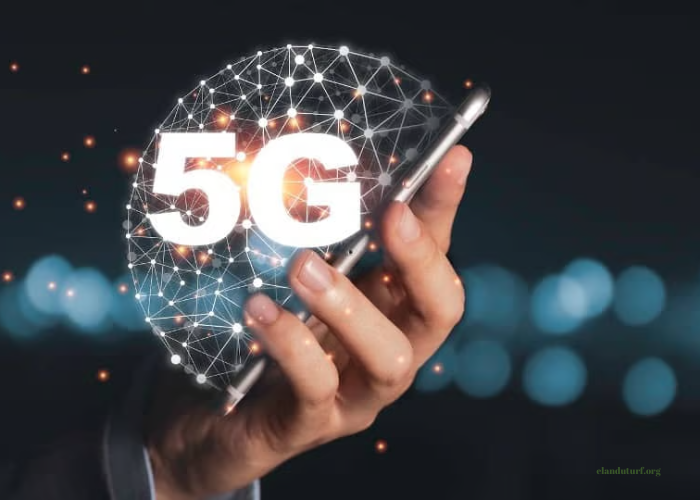In an era where connectivity is integral to everyday life, the advent of 5G technology represents a monumental shift in the way we communicate, interact, and engage with the world around us. The fifth generation of mobile networks, or 5G, promises to redefine connectivity standards, enhancing the speed, capacity, and reliability of wireless communication. As nations and industries scramble to adopt and implement Power of 5G technology, it’s essential to explore its capabilities, implications, and the transformative potential it holds for our global society.
Understanding 5G Technology
5G technology builds on the foundation laid by its predecessors, 4G LTE, 3G, and earlier mobile networks, offering significant improvements across several key parameters:
- Speed: 5G networks boast download speeds of up to 10 Gbps, which is up to 100 times faster than 4G. This incredible speed enables users to download large files, stream high-definition videos, and engage in real-time gaming with minimal latency.
- Latency: One of the most critical advancements of 5G is its reduced latency, which can be as low as 1 millisecond compared to 20-30 milliseconds for 4G. This ultra-low latency is vital for applications that require instant responses, such as autonomous vehicles, remote surgery, and augmented reality.
- Capacity: 5G networks can support a significantly higher number of devices simultaneously without sacrificing performance. This increased capacity is essential as the number of connected devices, known as the Internet of Things (IoT), continues to rise.
- Coverage: The technology enables improved coverage, particularly in urban areas, by utilizing a combination of higher frequency bands (millimeter waves) and lower frequency bands to penetrate buildings and obstacles more effectively.
- Energy Efficiency: 5G technology is designed to be more energy-efficient, enabling longer battery life for connected devices and reducing the overall energy consumption of network operations.
The Role of 5G in Global Connectivity
The potential impact of Power of 5G on global connectivity is profound. As the world becomes increasingly digital, the need for robust and reliable communication infrastructure is more critical than ever. 5G technology plays a pivotal role in bridging the digital divide, providing access to underserved and remote regions, and enabling innovative applications that can enhance productivity and quality of life.
Bridging the Digital Divide
Despite significant advancements in communication technology, a substantial portion of the global population remains without reliable internet access. According to the International Telecommunication Union (ITU), approximately 2.9 billion people were still unconnected as of 2021. 5G technology has the potential to bridge this gap by providing high-speed internet access to remote and underserved areas, where traditional broadband infrastructure is often lacking.
By deploying 5G networks, governments and service providers can extend connectivity to rural communities, enabling access to essential services such as education, healthcare, and employment opportunities. This enhanced connectivity can empower individuals and communities, driving economic growth and improving quality of life.
Transforming Industries
5G technology is poised to revolutionize various industries by enabling innovative applications and solutions. Some of the sectors that stand to benefit significantly from 5G include:
- Healthcare: The low latency and high bandwidth of 5G can facilitate remote consultations, telemedicine, and even remote surgeries, enabling healthcare providers to deliver services more efficiently and effectively. Wearable health devices can continuously monitor patients’ conditions and transmit data in real time, leading to improved patient outcomes.
- Transportation: In the realm of transportation, 5G can enhance the development of autonomous vehicles, smart traffic management systems, and connected infrastructure. These advancements can lead to safer and more efficient transportation systems, reducing congestion and improving air quality.
- Manufacturing: The industrial sector can leverage 5G technology to implement smart factories, where machines and devices communicate seamlessly, enabling automation, predictive maintenance, and real-time monitoring of production processes. This connectivity can lead to increased efficiency, reduced downtime, and higher product quality.
- Agriculture: 5G technology can also transform agriculture by enabling precision farming techniques. Farmers can utilize connected sensors and drones to monitor soil health, track crop growth, and optimize irrigation, leading to increased yields and sustainable practices.
Enabling the Internet of Things (IoT)
The rise of the Internet of Things (IoT) has revolutionized the way devices interact with one another and the internet. With billions of devices expected to be connected in the coming years, 5G’s ability to support a vast number of devices simultaneously makes it a crucial enabler of the IoT ecosystem.
5G technology can enhance smart cities, where connected devices facilitate efficient energy management, waste management, and public safety. For instance, smart streetlights equipped with sensors can adjust their brightness based on ambient light levels, reducing energy consumption. Similarly, connected waste bins can notify collection services when they are full, optimizing waste management processes.
Enhancing Entertainment and Media Consumption
The entertainment industry is also set to benefit from the deployment of 5G technology. With faster download speeds and improved streaming capabilities, users can access high-quality content more efficiently. Streaming services can offer ultra-high-definition (UHD) and virtual reality (VR) experiences without buffering or interruptions, enhancing user engagement and satisfaction.
Additionally, 5G technology enables the delivery of immersive augmented reality (AR) experiences, transforming how consumers interact with content. For example, live sports events can integrate AR elements, allowing viewers to access real-time statistics and player information while watching the game.
Challenges and Considerations
While the benefits of 5G technology are immense, its rollout and adoption are not without challenges. Several factors need to be considered to ensure the successful implementation of Power of 5G networks worldwide:
Infrastructure Investment
Building a robust 5G infrastructure requires significant investment in network infrastructure, including new base stations, antennas, and fiber optic cables. Governments and private sector players must collaborate to secure funding and resources to facilitate the rollout of 5G networks, particularly in rural and underserved areas.
Regulatory and Policy Framework
The deployment of 5G technology necessitates the establishment of regulatory and policy frameworks that address issues such as spectrum allocation, privacy, and data security. Policymakers must ensure that regulations keep pace with technological advancements while promoting competition and innovation within the telecommunications sector.
Cybersecurity Concerns
As 5G technology expands connectivity, it also raises cybersecurity concerns. With a greater number of connected devices comes an increased risk of cyberattacks and data breaches. Ensuring the security of 5G networks and connected devices is paramount to maintaining user trust and protecting sensitive information.
Environmental Considerations
The deployment of 5G infrastructure must also take environmental considerations into account. The production and installation of network equipment can have ecological impacts, and efforts should be made to minimize these effects. Additionally, the energy consumption of 5G networks should be addressed to ensure sustainability in the long run.
The Global Race for 5G Leadership
The competition for 5G leadership has intensified among nations, with countries vying to be at the forefront of this transformative technology. The race is not only about technological superiority but also about economic and strategic advantages that come with being a leader in 5G deployment.
China has emerged as a key player in the 5G landscape, with significant investments in infrastructure and a rapid rollout of 5G networks across the country. Meanwhile, the United States, South Korea, and several European nations are also making strides to establish themselves as leaders in 5G technology.
This global race for 5G dominance has led to increased collaboration and partnerships between countries, companies, and research institutions to accelerate innovation and deployment efforts. The outcomes of this race will have lasting implications for the global economy, international relations, and technological development.
The Future of 5G and Beyond
As we move toward a more connected future, the power of 5G will continue to unfold. The technology is expected to serve as a catalyst for innovations in various fields, paving the way for advancements that were previously unimaginable.
6G and Beyond
While 5G is still in its early stages of deployment, researchers and industry experts are already looking ahead to the next generation of wireless technology—6G. Expected to emerge in the 2030s, 6G promises even faster speeds, lower latency, and enhanced capabilities, enabling a more immersive and interconnected digital landscape.
Enhanced AI and Machine Learning Integration
The integration of artificial intelligence (AI) and machine learning with 5G technology will unlock new possibilities for data analysis, decision-making, and automation. Smart systems can leverage real-time data to optimize processes, enhance user experiences, and drive innovation across various sectors.
New Economic Opportunities
The widespread Power of 5G technology will create new economic opportunities and job prospects across industries. As businesses leverage 5G capabilities to enhance their operations, the demand for skilled professionals in telecommunications, software development, data analysis, and cybersecurity will increase.
Conclusion
The power of 5G technology extends far beyond mere connectivity; it has the potential to reshape industries, empower communities, and drive economic growth worldwide. As nations and companies invest in 5G infrastructure and explore innovative applications, the benefits of this technology will become increasingly evident.
However, to realize the full potential of 5G, it is crucial to address the challenges associated with its deployment and adoption. By fostering collaboration between governments, industries, and research institutions, we can pave the way for a future where connectivity knows no bounds, enabling a more inclusive, innovative, and interconnected world.
In this rapidly evolving landscape, the journey has just begun, and the possibilities are limitless. As we embrace the power of 5G, we embark on a path toward a brighter, more connected future for all.







